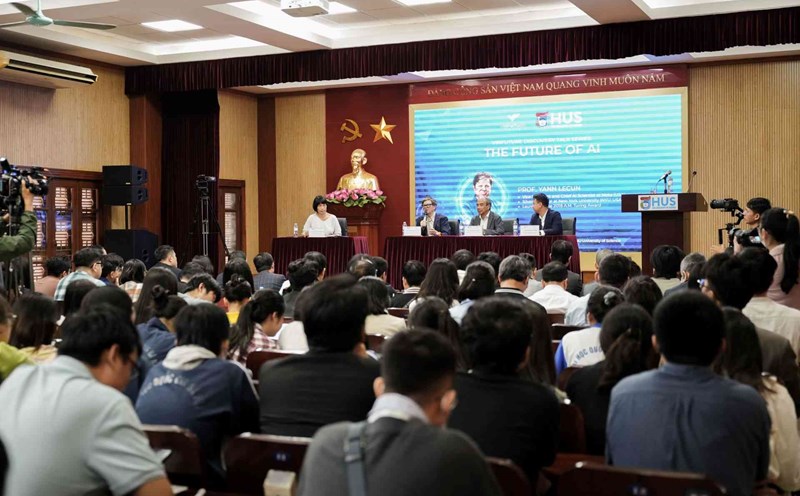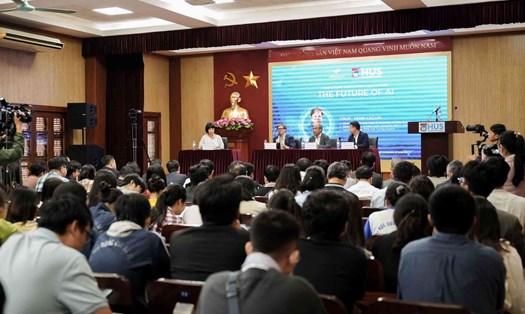Technology makes young people communicate less and less
The proliferation of technology and social media is reshaping the way we communicate. For younger generations in particular, these changes not only affect habits but also have negative impacts on emotions and social relationships.
A recent study surveyed 500 American teens, with the help of Instagram influencers, to explore the link between technology and loneliness. The results were sobering: More than 50% of teens surveyed admitted that they had not spoken to anyone, either in person or online, in the previous hour. Notably, this survey was conducted during the summer, a time when teens are out of school and have more time to spend on social media apps.
Despite seemingly being online all the time, young people are not really socializing. This trend is not limited to teenagers. In the United States, the number of adults who feel lonely has increased significantly over the past two decades. Half of adults in the country admit that they regularly experience loneliness, a form of psychological distress caused by social isolation.
How has technology, designed to connect people, become a factor that is increasingly pulling them apart? The answer is simple: the way we use technology. The growing popularity of smartphones and social media has profoundly changed the norms of human communication. Instead of direct phone calls, we increasingly prefer short text messages. But those emotionless lines cannot replace real human connection.
Many young people share that they find it difficult to express themselves on online platforms. The content shared on social media often does not reflect the real person but only a "perfect version". This causes both the sharer and the followers to fall into a spiral of fakeness and distance.
A study by psychologist Vivek Murthy, who has called loneliness a modern epidemic, found that a lack of real human interaction is a major cause of loneliness. He said that a terse birthday message like “HBD” (for Happy Birthday) can’t compare to hearing a friend’s voice or seeing their face over a video call.
Loneliness is not just a consequence of technology use, but also a consequence of how we rely on it. As technology takes over our lives, young people are losing basic communication skills. Face-to-face meetings are becoming rarer, replaced by cold text messages.
The dangers of social media comparison
Social media was created to bring people together, but it has become an ideal place for comparison and competition. Many studies have shown that comparing yourself to others on platforms like Instagram or TikTok is one of the main causes of loneliness, depression and insecurity in young people.
Social comparison, a natural human phenomenon, is exacerbated by the amount of time we spend on social media. The flashy photos and colorful videos often do not reflect reality, but easily make viewers feel inferior. A young person may compare the number of likes on their posts with their friends, or feel inferior when looking at the perfect photos of influencers.
Not only that, social media also encourages us to seek validation from others through likes and comments. Not getting enough interaction on a post can significantly reduce a person's self-esteem. Some young people even delete posts simply because they don't get the desired number of likes.
Research by Chia-chen Yang, a professor at the University of Oklahoma, shows that judgmental comparisons, such as envy of others’ popularity or appearance, are a cause of psychological distress. Meanwhile, positive comparisons, such as learning from others’ successes, are motivating. Unfortunately, social media is designed to promote negative comparisons more than positive ones.
Another problem that social media brings is the feeling of "FOMO" (Fear of Missing Out). When seeing friends participating in fun events or achieving achievements, many people feel that their lives have become bland and meaningless. This feeling not only increases the level of loneliness but also makes many young people fall into a state of depression.
Additionally, video addiction—especially short-form content like TikTok or Instagram Reels—is also contributing to increased isolation. People who spend too much time bingeing videos often forget to engage with the real world. This can not only affect mental health, but also have negative effects on physical health, such as lack of sleep and lack of exercise.
To minimize the harmful effects of social media, experts recommend that we control the time we spend on it. Some platforms already offer tools like hiding likes or setting time limits. But most importantly, each person needs to be aware of how to use social media in a healthy way. If you feel that social media is making you feel self-conscious or lonely, try taking a break from it for a while. Instead of spending hours surfing the web, focus on real activities like meeting friends, taking classes, or simply calling a loved one.
The relationship between technology and loneliness is not an easy one to resolve, as both are constantly changing. But to avoid falling into a spiral of loneliness, we need to learn to use technology more wisely and consciously.











